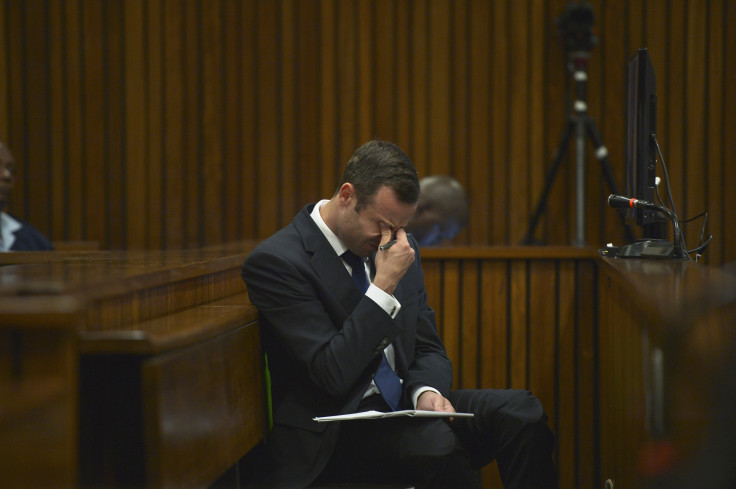Oscar Pistorius early release blocked by South African Justice Department after women's group petitions

The South African Department of Correctional Services has halted the early release of Oscar Pistorius on Friday, citing the decision to place him under correctional supervision as “prematurely made”.
In a statement released by Minister Michael Masutha, the decision to free Pistorius by the Correctional Supervision and Parole Board (CSPB) on 21 August 2015 was made on June 5, when Pistorius had served just eight months of his sentence.
However, Pistorius needed to have served at least one sixth, or 10 months, of his five-year sentence before being considered for release, effectively rendering the CSPB’s decision invalid, as it had “no legal basis”.
The South African sprint runner was scheduled to be transferred from prison to house arrest at his uncle’s mansion in Pretoria tomorrow. He would have been expected to wear an electronic tracking tag upon his release and will likely be allowed to leave the house to work, carry out community service, or attend important family events.
The matter of his release has now been passed on to a parole review board, which has 14 days to consider whether Pistorius should be released.
“They can also reach a decision earlier, where they can either agree with the decision made by the parole board or return it and advise the minister not to release Pistorius,” prominent criminal defence lawyer Ulrich Roux told Reuters.
Pistorius was found guilty of killing his girlfriend Reeva Steenkamp last year, admitting at his trial that he had killed Steenkamp unintentionally and unlawfully after he mistook her for an intruder.
Political Pressures A Factor of Last Minute Intervention
While the decision to put Pistorius’ release on hold has shocked the Paralympian's family, who was planning to welcome him home on Friday without much fanfare, the news would be welcomed by the Progressive Women’s Movement of South Africa (PWMSA), whose petition against Pistorus’ early release seems to have played a factor in the Justice Department’s decision.
In their August 17 submission, the PWMSA had requested that Minister Masutha not approve the release, citing the “Parole Boards’ insensitivity to the release of the offender during Women’s’ Month”.
This submission was acknowledged by the Minister in his statement to put the release on hold. Speaking from Cape Town and asked about the timing of his intervention, Minister Masutha also said: “Ordinarily I do not consider decisions of parole boards … I don’t go around looking at cases and checking whether they have been dealt with in compliance with the law. It’s only when a matter has been brought to my attention that I would deal with that.”
The Women’s League of the governing African National Congress also welcomed the ruling, saying the “erroneous judgement” and “extremely lenient sentence to Pistorius” had set a precedent in cases involving “gender-based violence”.
The news comes just as prosecutors filed an appeal before the court earlier this week to restrict Pistoris’ release and overturn his manslaughter charges.
Contact the writer at feedback@ibtimes.com.au, or let us know what you think below.






